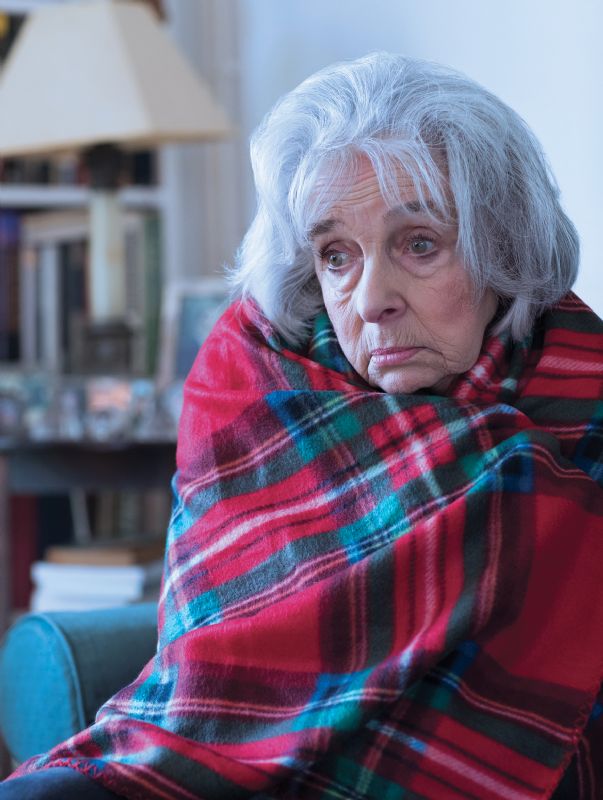- Home
- News, Articles & Reviews
- All Health & Beauty
- Looking Good, Feeling Great
- Medical Health
- Mirror Mirror on the Wall
- Style & Fashion
- General
- Vintage & Sustainable Fashion
We are hiring! Please click here to join our growing magazine delivery team in Gloucestershire!
Areas
Health & Beauty
Archive

Hypothermia
All Areas > Health & Beauty > Medical Health
Author: Kirsty Lilley, Posted: Tuesday, 17th December 2024, 09:00
Winter has begun in earnest and recently we have seen inclement weather bring with it a noticeable drop in temperature. It’s important that we look after each other at this time of year, especially as many people live alone and may be worrying about the cost of living, including heating.
It’s vital that we keep warm during the long winter months and understand the dangers that being too cold for too long can pose, especially to those who are more vulnerable.
Hypothermia is defined as a core body temperature below 35°C; normal body temperature being around 37°C. The body begins to lose heat faster than it can generate it and the symptoms can come on quickly.
It is a medical emergency which needs urgent treatment in a hospital setting. Call 999 or go to an Accident and Emergency Department if you think someone may be suffering from the effects of hypothermia, especially if they are a child. If you think you may be suffering from hypothermia, do not drive yourself to A&E, but call for an ambulance or get someone else to drive you instead.
What are the symptoms?
The symptoms of hypothermia include shivering, slurred speech, slow breathing, pale and cold skin which looks dry in appearance and may appear blue or grey. On brown skin this may be easier to spot on the soles of the feet or palms of the hands. Babies with hypothermia will be unusually quiet, floppy, refuse to feed and are cold to the touch.
Who is most at risk?
Although we can all fall prey to hypothermia given the wrong conditions, there are certain groups of people who may be more at risk. Older people who live alone or anyone with chronic health conditions may be more vulnerable.
Other factors that can increase the risk of hypothermia are: not wearing sufficient clothing in cold conditions; falling into cold water; staying out in the cold weather for too long; and wearing wet clothes.
Here are some “dos and don’ts” to remember whilst you wait for help.
Do...
• Make sure you sit with the patient until help arrives.
• Move them indoors or somewhere more sheltered.
• Remove any wet clothes and wrap them in a blanket or dry towel, ensuring the head is covered.
• Give them a warm drink (non-alcoholic) and some sugary food, like biscuits, if they are conscious.
• Keep talking to them to keep them awake until medical help arrives.
Do not...
• Give them an alcoholic drink.
• Rub their arms, hands, feet or legs.
• Put them in a hot bath or use a hot water bottle to warm them up.
Hypothermia is treated in hospital, where heart rate is monitored effectively, and a person can be given oxygen to help them breathe more easily. Infusions may be given via a person’s veins to begin the process of warming up the body. Severe hypothermia may mean a stay in intensive care.
Avoiding hypothermia
Aim to wear dry, waterproof clothes and loose layers on cold days. If possible, cover your head, hands, neck and ankles with warm layers and wear a hat. Avoid swimming in cold water for too long.
Check in on those who live alone, especially the elderly and those who live with health conditions. Make sure babies’ and children’s bedrooms aren’t too cold when they’re sleeping.Copyright © 2026 The Local Answer Limited.
Unauthorized use and/or duplication of this material without express and written permission from this site's author and/or owner is strictly prohibited. Excerpts and links may be used, provided that full and clear credit is given to The Local Answer Limited and thelocalanswer.co.uk with appropriate and specific direction to the original content.More articles you may be interested in...


© 2026 The Local Answer Limited - Registered in England and Wales - Company No. 06929408
Unit H, Churchill Industrial Estate, Churchill Road, Leckhampton, Cheltenham, GL53 7EG - VAT Registration No. 975613000You are leaving the TLA website...
You are now leaving the TLA website and are going to a website that is not operated by us. The Local Answer are not responsible for the content or availability of linked sites, and cannot accept liability if the linked site has been compromised and contains unsuitable images or other content. If you wish to proceed, please click the "Continue" button below:




